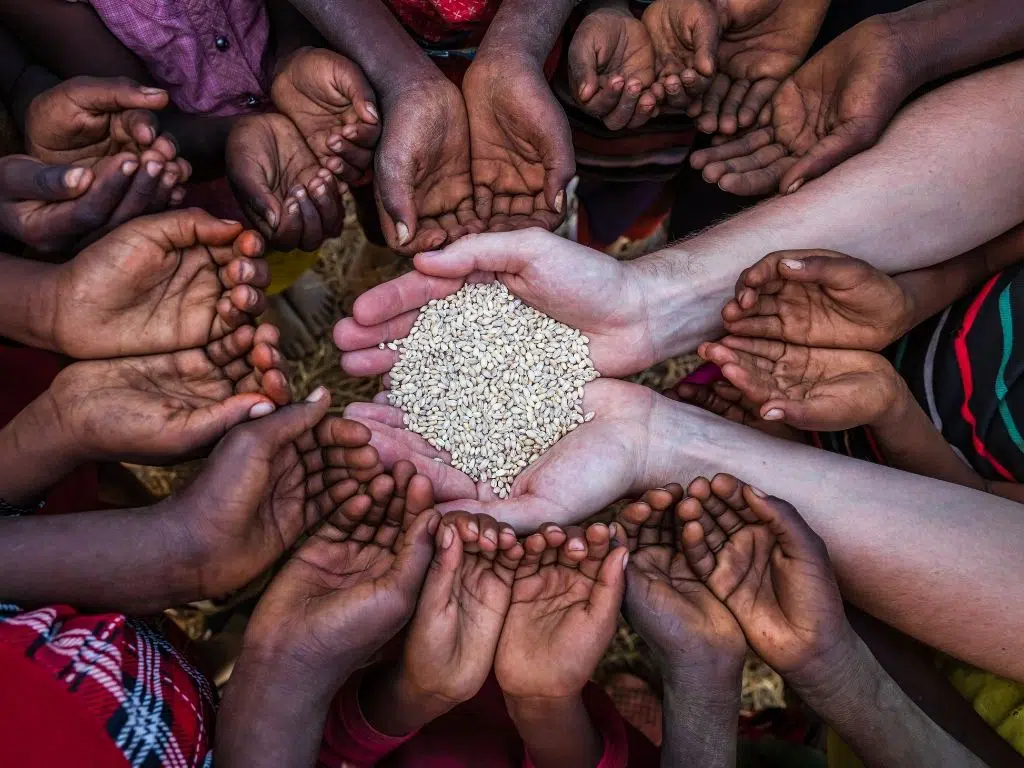In the 21st century, hunger is not a natural catastrophe, but rather it’s a failure of human priorities. According to the report of UN, hunger and shortage of food is not going into the right direction – the ignorance and illiteracy of the world diving them towards excessive malnutrition that billions of people starve and unable to access proper diet and sufficient food. The number of people suffering from chronic deprivation has been increasing over the past few years, amid climate change, warfare, environmental vulnerabilities and financial and economic upheaval. These deprivations cause a severe global food crisis that today is no longer considered a humanitarian crisis, but rather a global geopolitical challenge for the world. As UN Secretary General – Antonio Guterres stated, “Food and nutrition crises define the lives of millions– not for weeks or months, but for years and even lifetimes.”
Scarcity That Runs the World’s Pantry Dry
The shortage of food has dashed hopes for survival, as this global crisis is causing issues that are no longer merely humanitarian but have become a global venture transcending borders and political boundaries. The scarcity that runs the world’s pantry dry is due to fluctuations in climate crises, economic upheaval, and military warfare, which have prolonged and caused a food crisis. For instance, the war in the Gaza Strip, which started on 7th October 2023 till 2025, the atrocities and siege in conflict areas have entirely blocked the aid convoys, destroyed the farmlands, and created a series of famines for the population. Moreover, Ukraine, a major grain exporter, has experienced disruptions due to the war. This has led to the export of fertilizers and wheat to Middle Eastern countries and Africa, causing ripple effects on global prices. According to the report of the World Food Program, nearly 70 percent of hunger crises are caused by conflict situations, where food is used as a weapon to control the population and deteriorate their ability to resist.
When Climate Chaos and Food Collide
In the 21st Century, fluctuations in climatic conditions are primary catalysts of hunger. Changing rainfall patterns, rising temperatures, and recurring natural disasters threaten the global food system and also undermine the agricultural system. Moreover, floods and tsunamis are not just events; they have become the new normal, destroying everything at first, and then people rebuild from scratch. Due to this, the Intergovernmental Panel on Climate Change (IPCC) gives an alert that by 2050, global food production may face a decline of up to 30 percent. However, if the communities have well-planned strategies, such as adaptation and mitigation systems, then there might be sufficient opportunities to prevent further damage.
The Double Burden of Feeding the Divide
Sometimes, changes in global food crises are not merely the primary reasons for scarcity; inequality and extravagance also contribute to food shortages. Despite food shortages, the world produces enough food to supply and feed everyone; however, one-third of these supply — approximately 1.3 billion tons annually—is wasted. For instance, in developed countries, when food expires in supermarkets, they dispose of and waste all the items. On the contrary, economically fragile countries are unable to get food due to weak infrastructure and price hikes. Moreover, sometimes inflation and currency devaluation also make it difficult for millions of people to afford basic staples.
Conclusion
The shortage of food is not merely a crisis caused by resource constraints; it is a humanitarian crisis. The atrocious way of wasting food resources at the global level and the inequality of not receiving adequate food highlight the division of classes (upper and middle classes). Sometimes geopolitical conflicts, such as the war-torn streets of Gaza, lead to a massive famine in war because food is now yet another weapon to fight. Thus, food crisis is not a minor issue; it is an enormous problem that requires justice, shared global responsibility, and sustainability. When states unite to make food a human right rather than a privilege, a world can truly begin to break bread in peace and solidarity. (The writer can be reached at: [email protected])
Opinions expressed in this article are the author’s own and do not necessarily reflect WNAM’s editorial policy.


